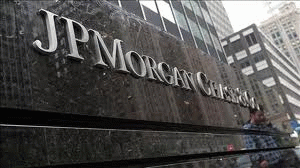TARP -- the infamous Troubled Assets Relief Program that bailed out Wall Street in 2008 -- is over. The Treasury Department announced it will be completing the sale of the remaining shares it owns of the banks and of General Motors.
But in reality it's not over. The biggest Wall Street banks are now far bigger than they were four years ago when they were considered too big to fail. The five largest have almost 44 percent of all US bank deposits.
That's up from 37 percent in 2007, just before the crash. A decade ago they had just 28 percent.
The biggest banks keep getting bigger because they can borrow more cheaply than smaller banks. That's because investors believe the government will bail them out if they get into trouble, rather than force them into a form of bankruptcy (as the new Dodd-Frank law makes possible).
That's why it's necessary to limit their size and break up the biggest.
Washington may be getting the message. A few months ago Dan Tarullo, the Fed governor who specializes in bank regulation, proposed capping the size of the banks' balance sheets.
Some former titans of Wall Street are saying much the same thing. Even Sandy Weill, who created Citigroup (which required $445 billion in TARP loans and asset guarantees) is proposing the biggest banks be broken up.
The new Congress may also be supportive. The new chairman of the House Financial Services Committee, Texas Republican Jeb Hensarling, has been a strong ally of small banks in their push to rein in their bigger rivals, and has expressed concern about the largest being too big to fail.
It's not irrelevant that the Dallas branch of the Federal Reserve Board, in Hensarling's home district, has also proposed breaking up the biggest.
Meanwhile, over in the Senate, Ohio Senator Sherrod Brown, is a strong advocate for breaking up the big banks and is now on the Senate Finance Committee. And Elizabeth Warren, scourge of Wall Street, will sit on the Senate Banking Committee.
In other words, the timing is right. The oven is ready. All we need is another multi-billion dollar banking loss -- like JP Morgan Chase's last year -- and the biggest banks are cooked.






